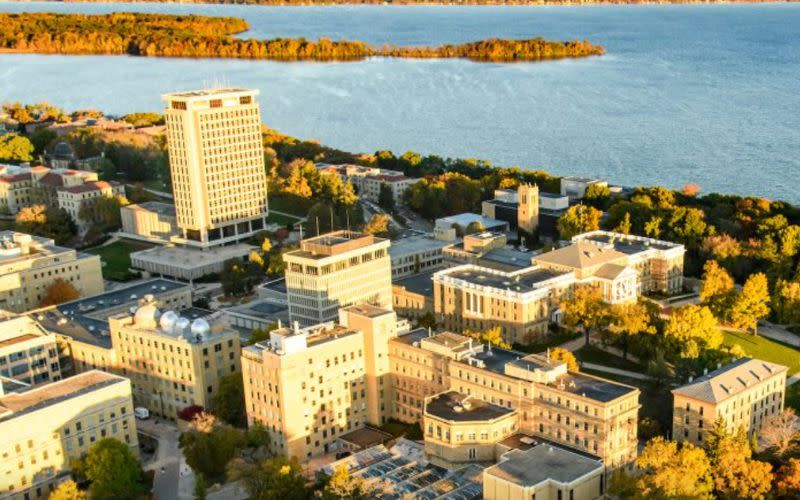University of Wisconsin-Madison Offers Free Tuition for Members of Federally Recognized Wisconsin Tribes

The University of Wisconsin-Madison will now cover the full cost of an undergraduate degree and tuition for certain graduate students who are Wisconsin residents and also enrolled members of a federally recognized Wisconsin Tribe beginning fall of 2024.
The initiative, dubbed the e Wisconsin Tribal Educational Program, covers the full cost of an undergraduate degree, as well asin-state tuition, housing, meals, books, and other educational expenses. The program will also cover the cost of in-state tuition for professional students pursuing a J.D. (law) or M.D. (medical) degree.
“As a university, we are deeply committed to a future of mutual respect and cooperation with the American Indian tribes in Wisconsin,” Chancellor Jennifer Mnookin said in a press release. “This program is another tangible, meaningful step in that direction.”
The program is not based on financial need, and will be awarded regardless of family income. Current students who qualify will also receive the program’s financial support beginning in the fall of 2024.
Mnookin met with the Great Lakes Inter-Tribal Council over the past year to discuss the proposed program and make changes per the council’s feedback. In October, the council unanimously voted to support the Wisconsin Tribal Educational Program.
“While several other states have programs with similar goals, we are not aware of another effort that goes this far financially to help Native students afford higher education,” said Shannon Holsey, chairwoman of the Great Lakes Inter-Tribal Council, in a press release. “This program sends a strong message that our students are important to the state’s flagship university.”
Despite that the University is located on Ho-Chunk (Hooçak) land, UW-Madison enrolled a total of 50,633 students for the 2023-24 academic year, and Native students only accounted for 134 of them, according to the Office of the Registrar of UW-Madison.
Since 2016, a Native Nations working group at UW-Madison has been working to create a strategic plan to build relationships with the 11 federally recognized Tribes of Wisconsin. In 2019, the university pledged a shared future collaboration with the Ho-Chunk Nation.
“It is our hope that more Native students will take a second look at UW–Madison and realize that we are not out of reach,” said Carla Vigue, UW–Madison's director of tribal relations, in a press release. “I want Native students to know that, once here, we have support and services that can help them thrive and feel a real sense of belonging at this world-class university.”
About the Author: "Native News Online is one of the most-read publications covering Indian Country and the news that matters to American Indians, Alaska Natives and other Indigenous people. Reach out to us at editor@nativenewsonline.net. "
Contact: news@nativenewsonline.net

